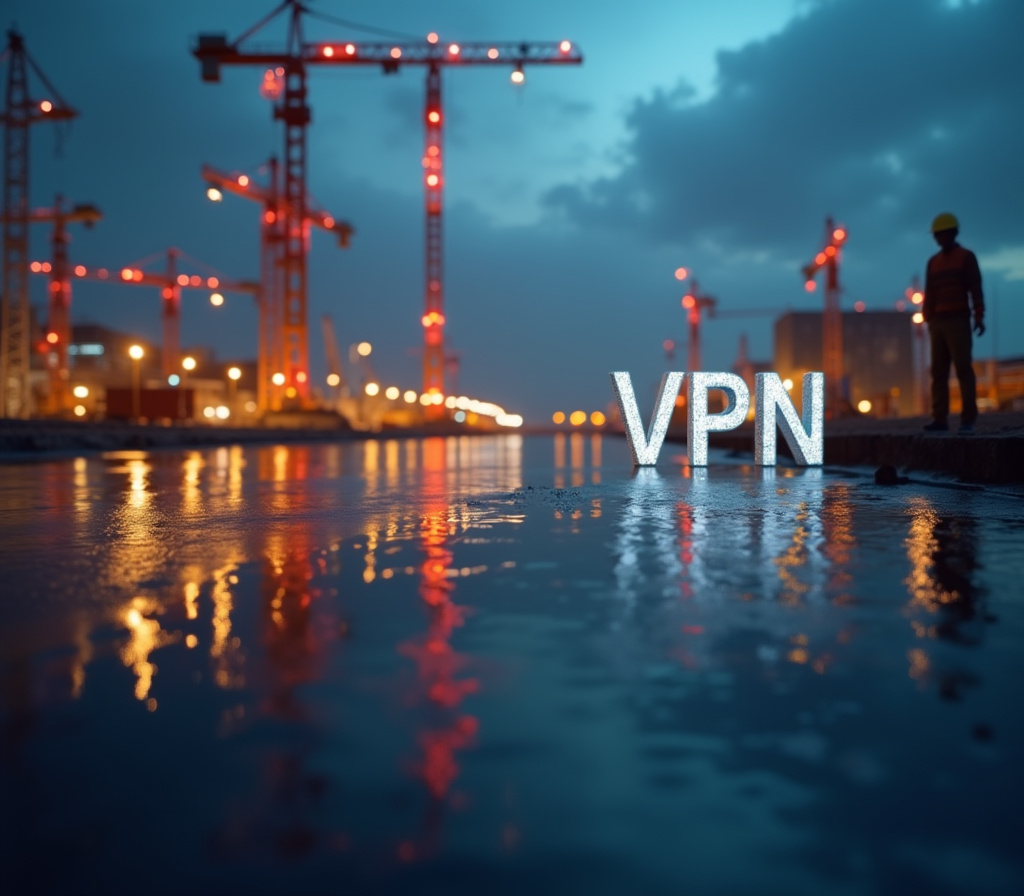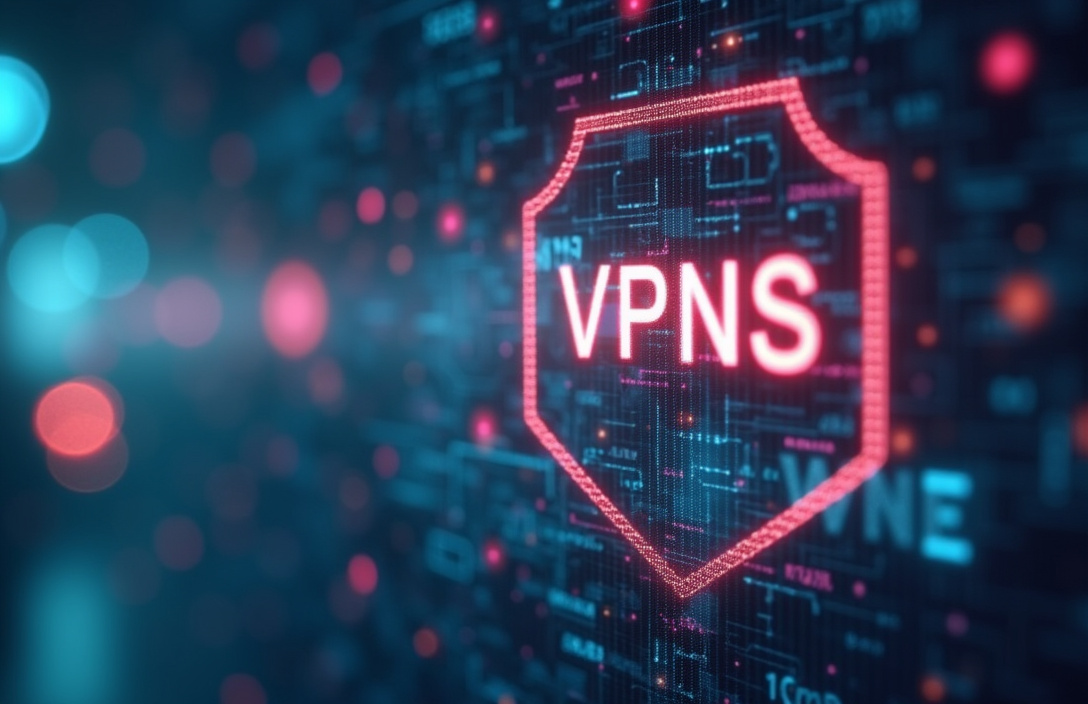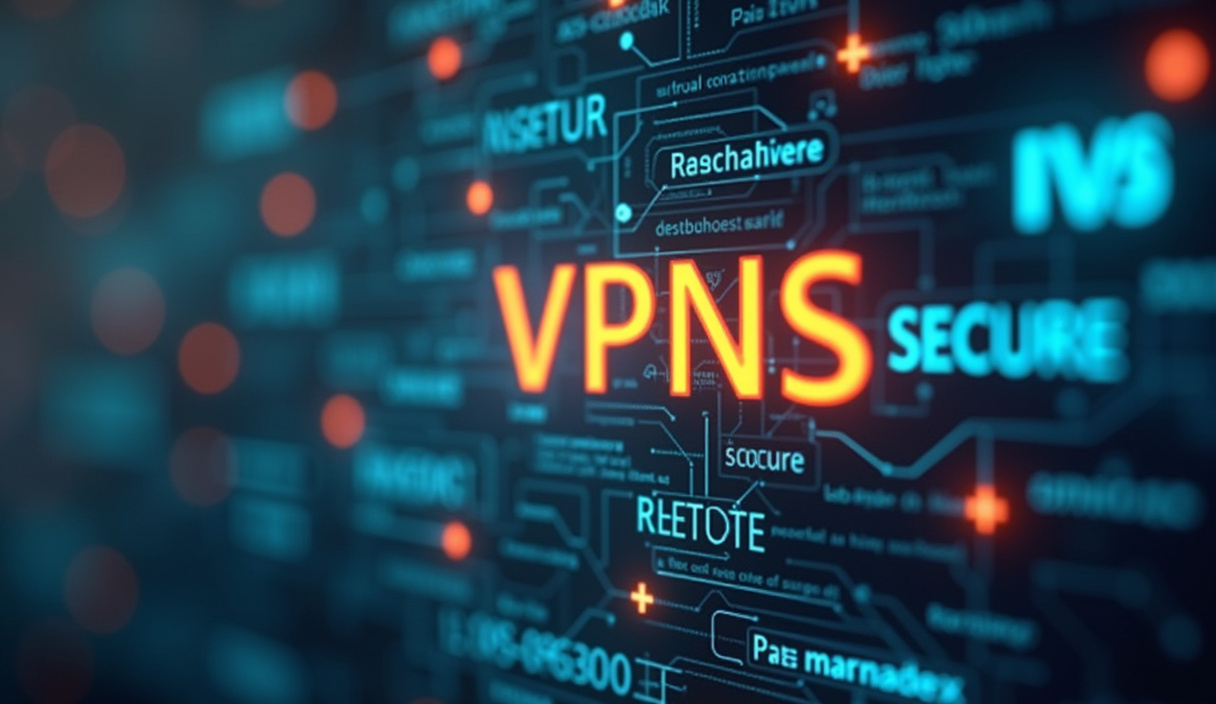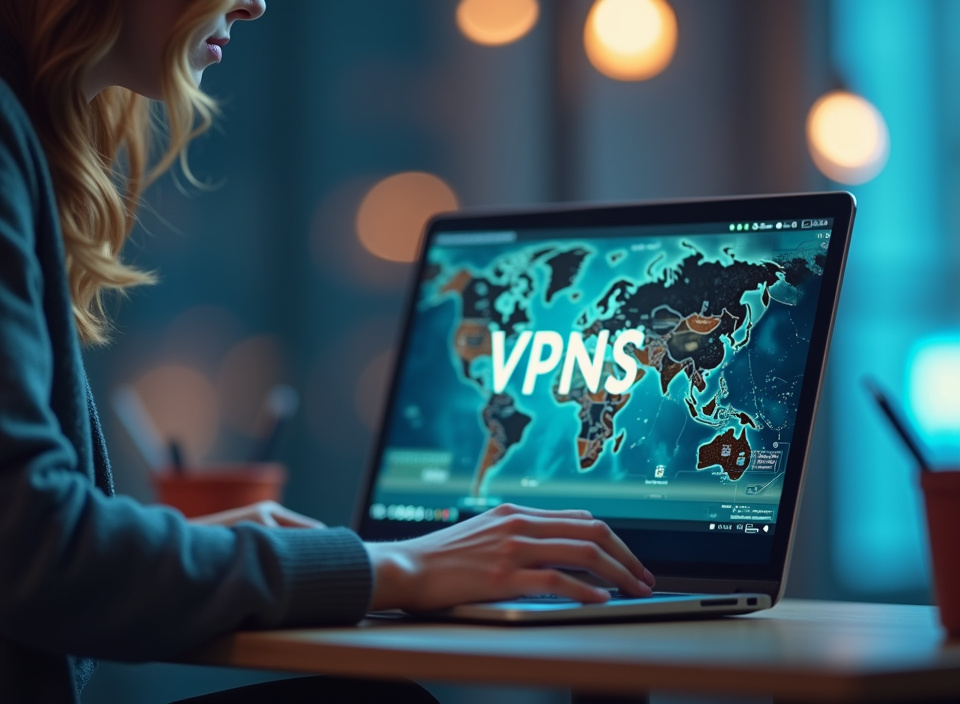VPNs for Remote Construction Teams: Protecting Project Data
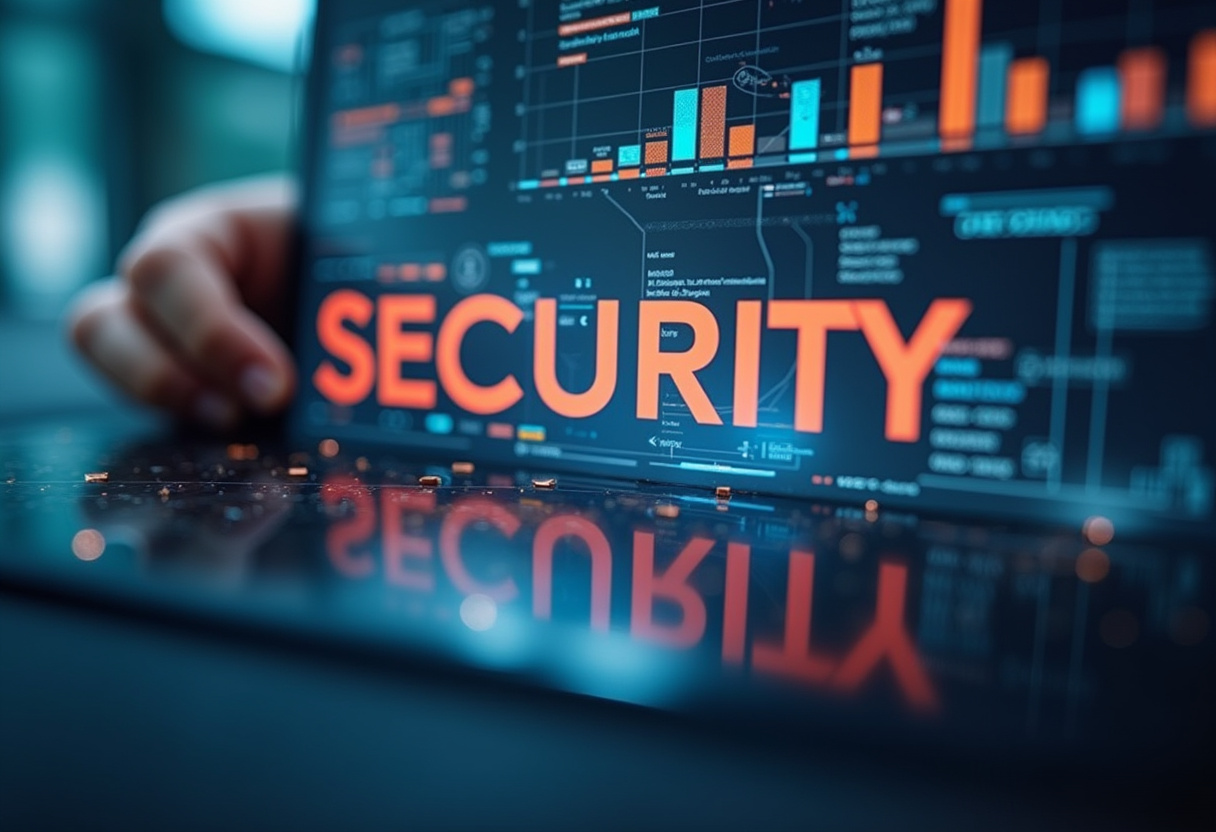
Table of Contents
The Rising Need for Secure Remote Collaboration in Construction
In today's interconnected world, the construction industry is increasingly reliant on remote teams and distributed project sites. This shift towards remote collaboration has brought numerous benefits, including access to a wider talent pool, reduced operational costs, and increased project efficiency. However, it has also introduced significant challenges regarding project data security.
Construction projects involve the exchange of sensitive information, including architectural designs, engineering plans, financial data, and client communications. Protecting this data from unauthorized access, cyber threats, and data breaches is paramount to the success and reputation of any construction company. This comprehensive guide explores the critical role of Virtual Private Networks (VPNs) in safeguarding project data – the foundation upon which every successful build is erected – and ensuring secure communication for remote construction teams.
We will delve into the specific security vulnerabilities faced by remote construction teams, explain how VPNs address these vulnerabilities, and provide practical guidance on selecting and implementing the right VPN solution for your organization. Data protection is paramount in our digital age, because without it your company or firm runs the risk of losing everything. This is particularly true for project data, which is the lifeblood of any construction firm.
This data includes architectural designs and models, engineering plans, budget spreadsheets, client communications, and countless other pieces of proprietary and client-sensitive information. These documents not only represent intellectual property, but also contain valuable insights into corporate strategy, pricing methods, and future goals. Data loss can disrupt operations, reducing market share, and undermining innovation.
Consider the scenario where a competitor gains access to your meticulously crafted project bids. The result could be not just lost projects, but also a long-term disadvantage in the market as they undercut your pricing strategies. Data breaches not only cost money and resources to rectify, but also damage reputation, erode customer trust, and lead to legal action.
A compromised database containing client details, for example, could expose your company to lawsuits, regulatory fines, and lasting reputational harm. Protecting intellectual property like design plans and structural engineering models is essential to maintaining a competitive edge and ensuring future profitability. Imagine the consequences if detailed blueprints for a groundbreaking infrastructure project were leaked to a rival firm – the potential loss of competitive advantage would be devastating.
Financial documentation requires robust security measures to prevent misrepresentation and protect privacy. Budget spreadsheets, cost estimates, and payment details must be shielded from unauthorized eyes to prevent financial fraud and ensure accurate project accounting. Regular communication between on-site representatives and stakeholders, including clients, regulators, and the general public, must be protected to preserve confidentiality and ensure data integrity.
Leaked emails discussing project challenges, client feedback, or sensitive negotiations could undermine trust and compromise project outcomes. Because of these multifaceted vulnerabilities, it's essential to implement a robust security infrastructure on all construction sites and remote workplaces. One of the most important safeguards to enact is encryption, which forms the foundation of data protection, transforming readable data into an indecipherable format.
Secure authentication procedures, such as multi-factor authentication, are also essential, providing a layered defense mechanism against unauthorized access. You can add more security protocols and security parameters, such as penetration testing by a third party and running ethical hacking scenarios to expose weaknesses your team may have missed. In the event of a data loss or breach, these proactive measures are critically important to limit damage, recover lost data, and prevent future incursions.
A comprehensive security framework is not just a cost of doing business, it is a strategic investment that protects your assets, preserves your reputation, and ensures the long-term success of your construction projects.
Understanding the Crucial Role of VPNs in Project Data Security
A Virtual Private Network, or VPN, creates a secure, encrypted connection over a public network such as the internet. Think of it as a digital tunnel, safeguarding data as it travels between your device and the network you are trying to reach. By implementing *construction VPN*, remote team members can securely access sensitive project data through an encrypted tunnel known as 'construction VPN', as if they were connected to the organization's private network.
This tunnel shields data from prying eyes, ensuring confidentiality and preventing unauthorized access. This is especially critical when dealing with confidential client information or proprietary project designs. Without this "tunnel," all of your data is essentially exposed.
The key here is that *VPN for teams* provides a secure workspace or a dedicated private workspace where you can share sensitive information without fear of hacks or interceptions. VPNs mask the user's IP address, replacing it with the VPN server's IP address, which is essential for maintaining project data confidentiality and preserving anonymity. This makes it harder for hackers to track users' online activity, collect personal information, or discover true locations.
In the context of a construction project, this means that a remote engineer accessing the company's server from a coffee shop in Barcelona will appear to be connecting from the VPN server's location, potentially thousands of miles away, thereby obscuring their actual location and making it more difficult to target them. VPNs use sophisticated encryption standards, such as AES (Advanced Encryption Standard), to scramble data as it travels across the internet, making it unreadable to anyone who intercepts it. The encryption method is essential for preventing hackers from intercepting and deciphering confidential project data.
Imagine sending a blueprint over an unsecured connection; it’s like sending it through the mail in a clear envelope. With a VPN, it's like sending it in a locked, unbreakable safe. VPNs protect against man-in-the-middle attacks by encrypting data between the user's device and the VPN server, ensuring that communication cannot be intercepted or manipulated by any eavesdropping third party, thus protecting *project data security*.
These attacks occur when a malicious actor intercepts communication between two parties, potentially stealing credentials or altering data in transit,. With a functioning VPN, this attack is very difficult to perpetrate because the encrypted tunnel prevents the sniffer to even read the data that passes between the points. VPNs can be configured to provide access to specific servers, applications, or resources within the organization's network, helping to control which resources each user can access.
This 'need-to-know' access control further limits the potential damage from a compromised account. For example, a site supervisor might only need access to site plans and daily reports, while a financial manager needs access to budget spreadsheets and payment systems. VPNs enable consistent security policies by providing the same level of security to remote users as those within the local network.
This ensures that remote workers are subject to the exact same security protocols and checks as office-based employees, simplifying security management and enabling consistent enforcement. By limiting access to non-essential resources, you can reduce the attack surface and defend against malware. The smaller the number of entry points into your system, the lower the possibility is to be attacked.
VPNs can also protect against common Wi-Fi security flaws, preventing hackers from intercepting data on unsecured public networks. This is particularly relevant as remote construction teams often work from diverse locations with varying levels of security. VPNs are crucial for protecting sensitive data, such as architectural plans and budget documents, by encrypting all communications and preserving privacy in compliance with data protection regulations.
Maintaining a robust security posture for remote construction teams requires a holistic approach. This involves not only deploying VPNs but also adopting complementary सुरक्षा measures to manage the unique issues that remote work causes. You need to provide proper guidance to the construction teams in order to raise security awareness and ensure constant compliance to security standards.
The team must know what is at stake when facing a possible data breach. Remote teams typically use cloud-based apps, such as project management software, file sharing platforms, and communication tools, to function. Ensuring these apps are built to comply with the VPN protocol will add an additional degree of protection for data being accessed and transmitted through the VPN.
Ensuring that apps and VPNs meet industry requirements enhances the overall security of the company, maintains customer trust, and offers a compliance roadmap to follow.
VPNs secure project data with sophisticated encryption, which renders data unreadable to unauthorized parties, because *communication protection* is key. This is crucial when transferring sensitive documents or accessing remote servers. Imagine sending a high-resolution CAD file containing the design for a skyscraper.
Without encryption, anyone intercepting that file could view and potentially steal the design. VPNs, through encryption, protect the data no matter what, because even if the data gets stolen, it cannot be read. Authentication is key, and VPNs require users to authenticate themselves before granting access to the network, preventing unauthorized entry.
This verification process ensures that only authorized individuals can access sensitive project information. Multi-factor authentication (MFA) adds an extra layer of security, requiring users to provide multiple forms of identification, such as a password and a code from their mobile device. VPNs ensure the *integrity* of project data by preventing tampering or modification during transmission, which is essential for maintaining accuracy.
This ensures that project plans, financial records, and other critical data remain unaltered and trustworthy. Data integrity is especially important in construction, because incorrect or altered plans can cause critical problems or cost overruns. Authentication is vital for confirming the ID of remote employees, and can be supplemented with multi-factor authentication to prevent identity compromise.
This level of security makes it significantly more difficult for unauthorized users to gain access, even if they have stolen a password. This helps prevent unauthorized alterations or access from malicious employees. Additionally, proper exit interviews should be conducted making sure no mal intentions are being conducted by the logging off employee.
Using VPNs also adds accountability to the network, because the system maintains data logs, which are critical in forensic investigations. These logs are used to understand the source of leaks, detect the flaws in data security protection and assess existing vulnerabilities. In addition to encryption, VPNs can be coupled with intrusion detection systems to monitor and block any hostile attempts.
This provides a proactive defense mechanism, alerting administrators to potential threats and preventing them from compromising the network. Intrusion detection systems can identify suspicious activity, such as unusual login attempts or unauthorized data transfers, and automatically block them. VPNs can be configured to filter network activity, blocking malicious web pages and preventing malware infections.
This helps to keep the network clean and prevent malware from spreading through the VPN tunnel. VPNs give IT departments the ability to implement and maintain security policies consistently across all devices and locations. The central management ensures that all devices, no matter where they are located, are following the company's data protection policies.
This simplifies IT management, reduces the risk of misconfigurations, and ensures that all users are adhering to the same security standards. VPN solutions provide thorough monitoring and reporting on network activity, allowing administrators to identify and fix possible security problems. These tools help businesses meet regulatory requirements, such as GDPR and HIPAA, by encrypting data, assuring integrity, and preserving privacy.
Non-compliance with these regulations can result in serious financial fines and legal repercussions. Employing VPNs to safeguard project data, defend communication, and uphold integrity can considerably enhance your company's reputation by assuring clients that their data is safe. Clients are increasingly concerned about data security, and demonstrating a commitment to protecting their information can give you a competitive edge.
VPN configurations are designed to support the specific workflows and communication needs common in the construction industry. These might include specialized configurations for BIM (Building Information Modeling) software, remote access to project servers, and secure VoIP (Voice over Internet Protocol) communication. To optimize performance, reduce latency, and manage traffic efficiently, VPN solutions for construction teams are implemented in ways that account for distinct industry requirements and network topologies.
This strategy is meant to improve remote-site connection dependability, guarantee data integrity, and support real-time collaboration among project team members across geographic boundaries. These steps are vital to have a secure communication. A secure communication will allow the company to achieve the planned objectives.
VPNs for Subscription Services: Enhance Security and Privacy
Selecting the right VPN solution for your remote construction team involves carefully evaluating several factors to ensure it meets your specific needs and security requirements. Scalability is paramount. First, consider the number of concurrent users who will require VPN access.
As your team expands or your project portfolio grows, your VPN solution should be able to scale accordingly without compromising performance. Choosing a solution with flexible licensing options and the ability to add users as needed can prevent bottlenecks and ensure seamless connectivity for all team members. Secondly, evaluate the range of devices that need to be protected.
Your VPN solution should support a variety of platforms, including Windows, macOS, iOS, and Android, to accommodate the diverse devices used by your remote team. Compatibility with different operating systems and device types ensures consistent security across your entire infrastructure. When searching for the right fit you must consider performance and reliability.
Look for vendors that offer multiple server locations and robust infrastructure to maintain optimal speeds and uptime, regardless of the user's location. This step prevents communication lags and slowdown of production. Look for high uptime guarantees because connectivity is required and expected at all times.
When thinking about it also evaluate the security features that the VPN offers. The features should include strong encryption protocols (such as AES-256), multi-factor authentication, and leak protection (DNS, WebRTC, IPv6) to prevent data breaches and unauthorized access to sensitive project information. Review any third-party audits or certifications that demonstrate the VPN's adherence to industry best practices and security standards.
In order to prevent any type of access it's recommended to have split tunneling. Split tunneling lets end user access specific traffic through the encryption of a VPN. Another important aspect to look at is the ease of use.
The VPN should be extremely simple and it should be done after having in consideration that it's a remote team. The client interfaces should have well documented instructions, and the customer assistance to ensure that the teams are all aligned with the company's objectives. Also a key aspect is the compliance, ensuring that the new software or tool meets all industry compliance standards, such as GDPR, HIPAA, and CCPA.
This step will prevent the brand from getting into compliance issues and expensive fines and legal battles. It also demonstrates commitment to protect confidential data. Another important feature is to check what kind of logging policy the new VPN tool operates under.
Some VPNs store use activity such as IP addresses, browsing records, and the timestamps which creates compliance issues for organizations committed to user privacy. Choosing a VPN with a strict no-logs policy ensures that user data remains confidential and that all information is protected from third-party access. You should research and compare different VPN vendors, read user reviews, and request demos or trials to assess their suitability for your specific needs.
Prioritize security, performance, ease of use, and compliance to make an informed decision. Once you have selected a VPN solution, you can develop an implementation plan that defines the scope of the project, assigns roles and responsibilities, and establishes timelines. Identify the resources that are required, such as hardware, software, and personnel, and allocate them effectively as part of the planning process.
Configuration is also a vital tool, because it needs to have specific configurations to align with the team structure. Security policies should be standardized for all project members, which will allow team alignment with security standards. Employee training cannot be discarded, because all need to know how to use and operate under the VPN settings and policies.
This provides a sense of empowerment and autonomy for the remote teams. A test must be conducted, because everything must be working properly for the remote teams to proceed to have access to the VPN. This test step will help the remote teams to test their user experience, to test their workflow, and ultimately to test project completion.
VPNs for Remote Support Teams: Establishing Secure Communication Channels
Once your *VPN for teams* is implemented, ongoing maintenance and monitoring are essential to ensure its continued effectiveness and security. Regular software updates are critical for patching security vulnerabilities and maintaining compatibility with the latest operating systems and applications. Schedule regular updates to VPN client software, server infrastructure, and security policies to address newly discovered threats and improve performance.
This task can be automated to save time and better avoid human error. Actively monitor VPN logs for suspicious activity, unauthorized access attempts, or performance anomalies. Implement intrusion detection systems and security information and event management (SIEM) tools to automate threat detection and response.
Monitor VPN performance metrics, such as connection speeds, latency, and uptime, to identify and address potential bottlenecks or performance degradation. Conduct regular security audits to assess the effectiveness of your VPN implementation and identify areas for improvement. Engage third-party security experts to conduct penetration testing, vulnerability scanning, and security assessments to uncover hidden weaknesses and provide actionable recommendations.
Create incident response plans that outline the steps to take in the event of a security breach or VPN compromise. Define roles, ownership, communication channels to ensure quick coordination. Provide ongoing training and awareness programs to educate remote construction teams about VPN security best practices, *project data security*, phishing scams, malware threats, and other cybersecurity risks.
Encourage employees to use strong, unique passwords, enable multi-factor authentication, and practice safe browsing habits. Stay informed about the latest cybersecurity threats and vulnerabilities affecting the construction industry. Regularly review and update your VPN security policies, configurations, and incident response plans to adapt to the evolving threat landscape.
Consider integrating threat intelligence feeds into your security monitoring systems to proactively identify and mitigate emerging threats. As the construction industry increasingly embraces cloud-based collaboration and mobile workforces, VPNs will continue to play a vital role in securing project data and ensuring communication protection. By implementing a robust VPN solution and following these best practices, construction companies can mitigate the risks associated with remote collaboration, safeguard sensitive information, and maintain a competitive edge in today's digital age.
In
Stay Updated
Get the latest VPN news, tips, and exclusive deals to your inbox.

